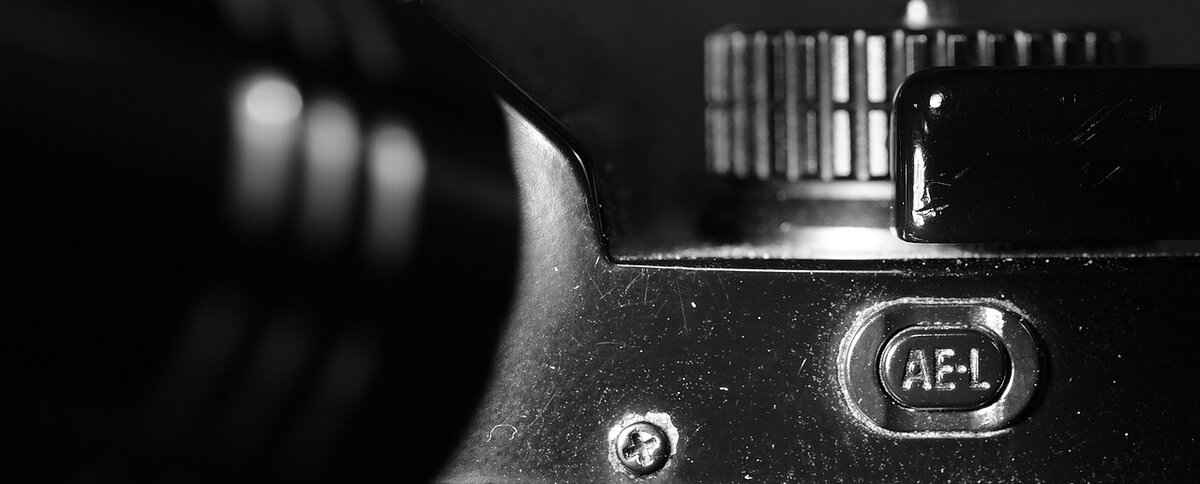When a loved one passes away, it can be a challenging time emotionally and financially. One of the pressing questions that often arises is, “Am I responsible for a deceased person’s debts?” This article delves into the intricacies of debt responsibility after death, aiming to clarify legal obligations and provide insights into estate management and creditor claims.
Understanding Estate Responsibility
Upon the death of an individual, their estate is generally responsible for settling any outstanding debts. This means that the assets left behind are used to pay off creditors before any distribution to heirs occurs. It’s essential for heirs to understand that they are typically not personally liable for the deceased’s debts unless they were co-signers or otherwise legally obligated.
Types of Debts That May Be Incurred
- Secured Debts: These debts are tied to specific assets, such as mortgages or car loans. They are prioritized during the settlement process, as creditors can reclaim the collateral if debts remain unpaid.
- Unsecured Debts: These debts do not have collateral backing them, such as credit card debts or medical bills. They are often settled after secured debts have been addressed.
Who Is Responsible for Paying Debts?
Determining responsibility for a deceased person’s debts can be complex. The executor of the estate plays a crucial role in managing these debts. They are tasked with ensuring that all valid claims are paid from the estate’s assets. Heirs, on the other hand, typically do not inherit the deceased’s debts unless they have co-signed loans or have other legal obligations.
What Happens to Debt After Death?
After a person dies, creditors may file claims against the estate to recover what is owed. The executor must review these claims and determine their validity. If the estate does not have sufficient assets to cover the debts, the estate may be declared bankrupt, which can significantly impact how debts are resolved.
State Laws and Regulations
It’s important to note that state laws can vary significantly regarding debt responsibilities after death. Some states have specific protections for surviving spouses or dependents, while others may allow creditors to pursue claims more aggressively. Familiarity with local laws is essential for heirs and executors alike.
Protecting Yourself from Debt Liability
Heirs can take proactive steps to protect themselves from unexpected debt liabilities. For instance, they should avoid co-signing loans and can request a full accounting of the deceased’s debts from the executor. Additionally, understanding the probate process can help heirs navigate potential financial pitfalls.
Consulting with Legal Professionals
Given the complexities involved in managing a deceased person’s debts, consulting with a legal professional is highly recommended. An attorney can provide tailored advice based on specific circumstances, ensuring that heirs understand their rights and responsibilities.
Common Myths About Debt Responsibility
- Myth 1: Heirs automatically inherit all debts.
- Myth 2: You can be held responsible for debts you were unaware of.
- Myth 3: All debts must be paid before any inheritance is distributed.
Final Thoughts on Managing Deceased Debts
In conclusion, understanding the responsibilities surrounding a deceased person’s debts is vital for heirs and executors alike. By being informed and seeking professional guidance, individuals can navigate the complexities of debt management in the context of estate administration. Proactive estate management can mitigate potential debt issues, ensuring a smoother transition during a difficult time.

Understanding Estate Responsibility
When a loved one passes away, the **responsibility** for their debts typically shifts to their estate. This section aims to clarify the process of estate responsibility, detailing how debts are managed after death and what implications this has for heirs.
Upon death, the deceased’s estate is tasked with settling any outstanding debts. An estate includes all assets owned by the deceased, such as real estate, bank accounts, and personal property. It is important to understand that the estate is considered a separate legal entity, which means that the debts are paid from the estate’s assets before any distributions are made to heirs.
Typically, the estate’s executor or administrator is responsible for managing this process. They must first identify all debts and obligations, which may include:
- Mortgage Loans: These are secured debts tied to real property. If the mortgage is not paid, the lender may initiate foreclosure proceedings.
- Credit Card Debt: This is usually classified as unsecured debt, which means it is not tied to any specific asset.
- Medical Bills: Outstanding medical expenses incurred before death may also be claimed against the estate.
- Personal Loans: Any personal loans taken by the deceased will need to be settled as well.
Understanding how these debts are categorized is crucial for heirs. Secured debts, such as mortgages and car loans, are typically settled through the sale of the associated assets. If the estate lacks sufficient funds to cover unsecured debts, these debts may be discharged, meaning creditors may not receive payment.
It is also essential to note that heirs are generally not personally liable for the deceased’s debts unless they were co-signers or had a legal obligation to pay. This means that if you inherit property or assets, you are not automatically responsible for settling all debts of the deceased.
The process of settling debts begins with the executor notifying creditors of the death. Creditors will then have a specific period to file claims against the estate. The executor must evaluate these claims and determine which debts are valid and should be paid. This process often requires careful management of the estate’s finances to ensure that there are enough assets to cover debts.
In cases where the debts exceed the assets, the estate may be deemed insolvent. In such situations, the estate may consider filing for bankruptcy. This process can significantly affect how debts are resolved and may limit the creditors’ ability to collect from the estate.
State laws play a significant role in how estate responsibilities are managed. Each state has its own regulations regarding the probate process, creditor claims, and the treatment of debts after death. It’s important for heirs to familiarize themselves with these laws to understand their rights and obligations fully.
To protect oneself from unexpected debt liabilities, heirs can take proactive steps. Consulting with a legal professional who specializes in estate law can provide valuable insights and guidance tailored to specific situations. This can help clarify any uncertainties regarding debt responsibilities and the overall management of the estate.
In summary, understanding estate responsibility is crucial for navigating the complexities of debts left behind by a deceased loved one. By comprehending how debts are categorized, the roles of executors, and the implications for heirs, individuals can better prepare themselves for the challenges that may arise during the estate settlement process.

Types of Debts That May Be Incurred
When a loved one passes away, the question of their outstanding debts often arises. It is crucial to understand that not all debts are treated equally after death. The way debts are handled can significantly impact the deceased’s estate and the heirs left behind. This section delves into the different categories of debts—specifically, secured and unsecured debts—and how they are managed in the aftermath of a person’s passing.
Understanding Secured Debts
Secured debts are obligations that are backed by collateral. This means that the lender has a claim on specific assets if the borrower defaults. Common examples of secured debts include:
- Mortgages: These are loans taken out to purchase real estate, where the property itself serves as collateral.
- Car Loans: Similar to mortgages, these loans are secured by the vehicle being financed.
In the event of death, the estate is responsible for settling these debts. Typically, the executor of the estate will assess the value of the secured assets and determine how to address the outstanding obligations. If the estate lacks sufficient funds, the executor may need to sell the collateralized property to pay off the debt.
Process of Settling Secured Debts
The process of addressing secured debts involves several steps:
- Asset Valuation: The executor must accurately assess the value of the secured assets.
- Debt Assessment: The total amount owed on the secured debts must be determined.
- Sale of Assets: If necessary, the executor may sell the assets to pay off the debts.
This process can be complex, and it is essential for the executor to follow legal guidelines to ensure that all actions taken are in the best interest of the estate and its beneficiaries.
Overview of Unsecured Debts
Unsecured debts, on the other hand, do not have any collateral backing them. These types of debts include:
- Credit Card Debt: This is a common form of unsecured debt that can accumulate quickly.
- Personal Loans: Loans that are not secured by any asset fall into this category.
- Medical Bills: Outstanding medical expenses can also be considered unsecured debts.
Upon the death of the debtor, these debts are generally settled through the estate’s assets. If the estate does not have enough funds to cover these debts, they may go unpaid, and creditors may not be able to pursue heirs for payment, unless they were co-signers.
Who Handles the Debts?
The responsibility for managing these debts falls primarily on the executor of the estate. It is their duty to ensure that all debts are addressed in accordance with state laws and the wishes of the deceased. Heirs typically do not inherit the debts unless they were directly responsible for them, such as through co-signing.
In summary, understanding the different types of debts incurred by a deceased individual is essential for effective estate management. Secured debts are tied to specific assets and must be settled through those assets, while unsecured debts are managed through the estate’s available resources. Proper handling of these debts can help alleviate potential financial burdens on heirs.
Secured Debts Explained
Secured debts are financial obligations that are backed by specific assets. This means that if the borrower fails to meet their repayment obligations, the lender has the right to take possession of the asset to recover the owed amount. Common examples of secured debts include mortgages and auto loans, where the property or vehicle serves as collateral. Understanding how these debts function is crucial, especially in the context of estate management after a person’s death.
When a deceased individual has secured debts, the process of settling these obligations typically involves the sale of the associated property. This is essential because the estate is responsible for clearing the debts before any assets can be distributed to heirs. The executor of the estate plays a pivotal role in this process, ensuring that all debts are settled in accordance with legal requirements.
Here is a breakdown of how secured debts are settled:
- Identification of Assets: The executor will first identify all assets tied to secured debts. This includes properties with mortgages and vehicles with loans.
- Valuation of Assets: It is important to assess the current market value of these assets. Proper valuation helps determine whether the estate can cover the debts through asset sales.
- Sale of Assets: Once valued, the executor may proceed with selling the assets. The proceeds from these sales are typically used to pay off the secured debts directly.
- Payment to Creditors: After selling the assets, the executor will use the funds to settle the debts with creditors. This process must follow state laws regarding the order of debt payment.
It’s important to note that if the sale of the asset does not cover the total amount owed, the remaining balance may become an unsecured debt of the estate. In such cases, the estate must handle these remaining obligations through other means, which may involve using estate funds or liquidating additional assets.
Understanding the implications of secured debts is vital for heirs. They are generally not responsible for these debts unless they co-signed for the loan or are otherwise legally obligated. However, heirs should be aware that if the estate cannot cover the debts, it may lead to complications in the distribution of assets.
In summary, the settlement of secured debts through the sale of associated property is a critical aspect of estate management. Executors must navigate this process carefully to ensure compliance with legal obligations and to protect the interests of the heirs. By understanding the mechanics of secured debts, families can better prepare for the financial responsibilities that may arise following the death of a loved one.
Examples of Secured Debts
When dealing with the complexities of debt after a loved one passes away, it is crucial to understand the concept of secured debts. These are financial obligations that are backed by specific assets, making them distinct from unsecured debts, which have no collateral. Understanding secured debts can significantly impact the responsibilities of heirs and the management of the deceased’s estate.
Common Examples of Secured Debts
- Mortgages: A mortgage is a loan taken out to purchase real estate, where the property itself serves as collateral. If the mortgage is not paid, the lender has the right to foreclose on the property.
- Car Loans: Similar to mortgages, car loans are secured by the vehicle being financed. Failure to make payments can lead to repossession of the car by the lender.
- Home Equity Loans: These loans allow homeowners to borrow against the equity in their property. Like mortgages, these loans are secured by the home.
- Secured Credit Cards: These credit cards require a cash deposit that acts as collateral, limiting the credit limit to the amount deposited.
Understanding these examples is essential for heirs, as they clarify what obligations may be inherited. For instance, if a deceased individual had a mortgage, the responsibility for the mortgage payments typically falls on the estate, and heirs may need to decide whether to keep the property or allow it to be sold to satisfy the debt.
In addition, the settlement of secured debts often involves specific processes. The executor of the estate plays a vital role in managing these obligations. They must assess the value of the secured assets and determine the best course of action for settling the debts. This may include selling the asset to pay off the debt or negotiating with creditors for alternative arrangements.
Legal Implications for Heirs
Heirs should be aware that they are generally not personally liable for secured debts unless they co-signed the loan or are otherwise legally obligated. However, the estate is responsible for settling these debts before any distribution of assets to heirs can occur. This means that heirs may receive less than expected if the estate’s debts are substantial.
Understanding secured debts is crucial for heirs to navigate the complexities of estate management effectively. By recognizing the implications of these debts, heirs can make informed decisions about their financial responsibilities and the management of inherited assets.
Process of Settling Secured Debts
When dealing with the after a loved one has passed away, it is crucial to understand the steps involved and the roles played by various parties. Secured debts, which are loans backed by collateral such as property or vehicles, must be addressed appropriately to ensure that the estate is managed effectively and that creditors are paid what they are owed.
The first step in this process is the valuation of assets. The executor of the estate, who is responsible for managing the deceased’s financial affairs, must assess the value of the secured assets. This step is vital because it determines how much can be generated from the sale of these assets to settle the debts. For example, if the deceased had a mortgage on a home, the executor needs to determine the current market value of the property. This valuation not only helps in settling debts but also provides insights into the overall financial health of the estate.
Once the assets have been valued, the executor must notify creditors of the death and provide them with the necessary information regarding the estate. This notification is essential as it allows creditors to file claims against the estate for the amounts owed. The executor is tasked with reviewing these claims to ensure they are valid and fall within the legal framework governing debt settlement.
Next, the executor must decide whether to sell the secured assets to pay off the debts. This decision is influenced by various factors, including the estate’s overall financial situation and the potential impact on heirs. For instance, if the property has significant equity, it may be beneficial to sell it to pay off the mortgage and any other secured debts. However, if the heirs wish to retain the property, they may need to negotiate with creditors or consider refinancing options.
Throughout this process, it is also important for the executor to maintain clear communication with all parties involved. This includes keeping heirs informed about the status of the estate and the steps being taken to settle debts. Transparency can help alleviate potential conflicts and misunderstandings among family members.
Additionally, the executor should be aware of the relevant state laws that govern the settlement of debts. Each state has its own regulations regarding the handling of secured debts and the rights of creditors, which can affect how the process unfolds. It is advisable for the executor to consult with legal professionals who specialize in estate law to ensure compliance with these laws and to navigate any complexities that may arise.
In conclusion, settling secured debts involves a systematic approach that includes asset valuation, creditor notification, and potential asset sales. The executor plays a pivotal role in this process, ensuring that debts are settled in a manner that respects the wishes of the deceased and the rights of the heirs. By understanding these steps and seeking appropriate legal guidance, executors can effectively manage the estate and fulfill their responsibilities.
Unsecured Debts Overview
Unsecured debts are financial obligations that lack any collateral backing, meaning they are not tied to specific assets. This characteristic differentiates them from secured debts, which are directly linked to properties such as homes or vehicles. Understanding how unsecured debts are treated in the context of a deceased person’s estate is crucial for heirs and estate administrators alike.
When an individual passes away, their estate is responsible for settling all outstanding debts. This includes both secured and unsecured debts. However, the treatment of unsecured debts can vary significantly from that of secured debts. Here, we will delve into the implications of unsecured debts on the deceased’s estate and the responsibilities of the heirs.
After a person’s death, unsecured creditors can file claims against the estate to recover what is owed. This process typically follows a specific timeline, which is governed by state laws. Creditors must submit their claims within a designated period, often set by the probate court. If the estate has sufficient assets, these claims will be settled accordingly. However, if the estate lacks the necessary funds, unsecured debts may go unpaid, and creditors may not be able to collect their dues.
Key Points to Consider:
- Estate’s Responsibility: The estate is responsible for paying off debts before any distributions are made to heirs. This means that the total value of the estate must first be assessed to determine how much can be allocated to settle debts.
- Role of the Executor: The executor of the estate plays a vital role in managing unsecured debts. They are tasked with notifying creditors and ensuring that claims are processed in a timely manner.
- Impact on Heirs: Generally, heirs are not personally liable for unsecured debts unless they were co-signers or had otherwise legally bound themselves to the debt. This means that heirs typically do not have to use their personal assets to pay off the deceased’s unsecured debts.
In cases where the deceased had more debts than assets, the estate may be declared insolvent. In such situations, unsecured creditors may receive only a fraction of what they are owed, or potentially nothing at all. This can lead to significant complications, especially for heirs who may have expected to inherit certain assets.
It is also important to note that state laws can significantly influence how unsecured debts are handled after someone’s death. Some states may have specific regulations that protect certain assets from being claimed by unsecured creditors, which can provide additional security for heirs.
To navigate the complexities of unsecured debts in a deceased person’s estate, it is often advisable for heirs and executors to seek legal guidance. An experienced attorney can help clarify obligations, manage creditor claims, and ensure compliance with applicable laws.
In summary, unsecured debts present unique challenges in the context of a deceased person’s estate. Understanding the implications for estate management and the rights of heirs is essential for ensuring a smooth process during what can be an emotionally taxing time. By being informed and proactive, heirs can better protect themselves from unexpected liabilities and navigate the complexities of estate settlement.

Who Is Responsible for Paying Debts?
Determining who is responsible for paying a deceased person’s debts can be a complex and often confusing issue. The legal landscape surrounding debt responsibility after death varies significantly, influenced by factors such as the type of debt and the laws of the state in which the deceased resided. This section aims to clarify the roles of executors, heirs, and estate administrators in managing these obligations.
The Role of the Executor
The executor is an individual appointed to manage the deceased’s estate. This role is crucial as the executor is responsible for settling debts and distributing assets according to the will or state law if no will exists. Their duties include:
- Identifying Debts: The executor must compile a comprehensive list of all debts owed by the deceased, which can include credit card debts, personal loans, and medical bills.
- Notifying Creditors: Creditors must be formally notified of the death, allowing them to file claims against the estate.
- Managing Payments: The executor is responsible for ensuring that valid debts are paid from the estate’s assets before any distributions to heirs are made.
Heirs’ Financial Responsibilities
Heirs generally are not personally responsible for the debts of the deceased unless they co-signed on a loan or are otherwise legally obligated. However, it is essential for heirs to understand the implications of the estate’s debts:
- Inheritances at Risk: If the estate does not have sufficient assets to cover its debts, heirs may receive little to no inheritance.
- Potential for Liability: Heirs should be cautious about accepting property or assets that may carry debt obligations.
The Role of Estate Administrators
In cases where there is no will or executor appointed, the court may assign an estate administrator. This individual has similar responsibilities to an executor, including:
- Inventorying Assets: The administrator must identify and manage the deceased’s assets to ensure that debts are settled.
- Following Legal Procedures: They must adhere to state laws governing the probate process, which can vary significantly from one jurisdiction to another.
Understanding Secured vs. Unsecured Debts
Not all debts are treated the same after death. Secured debts, such as mortgages or car loans, are tied to specific assets. These debts must be settled through the sale of the associated property. In contrast, unsecured debts, like credit card debts, do not have collateral backing them and may be paid from the estate’s remaining assets.
Creditor Claims and the Estate
Creditors have the right to file claims against the deceased’s estate within a specified period. The executor or administrator must review these claims and determine which are valid. Valid claims are paid from the estate’s assets before any distributions to heirs are made.
Bankruptcy Considerations
If the deceased’s debts exceed their assets, the estate may need to consider bankruptcy. This process can significantly affect how debts are resolved and may limit the ability of creditors to collect on outstanding debts.
Understanding the complexities of debt responsibility after death is crucial for both executors and heirs. Consulting with legal professionals can provide tailored guidance and ensure that all parties fulfill their obligations while protecting their interests.
The Role of the Executor
The role of the executor in managing a deceased person’s estate is crucial, particularly when it comes to handling debts. An executor is appointed either through a will or by a court, and they carry the legal responsibility of overseeing the estate’s financial obligations. This includes the management and settlement of any debts owed by the deceased.
One of the primary duties of an executor is to identify all of the deceased’s debts. This involves reviewing financial records, bank statements, and any outstanding bills. Executors must be diligent in their search to ensure that no creditor is overlooked. Once all debts are identified, the executor must prioritize them according to legal guidelines.
In general, debts are categorized into two main types: secured and unsecured. Secured debts, such as mortgages or car loans, are tied to specific assets. The executor is responsible for managing these debts, which often involves selling the secured asset to pay off the debt. For example, if the deceased had an outstanding mortgage, the executor may need to sell the property to satisfy that obligation.
On the other hand, unsecured debts, like credit card balances or personal loans, do not have collateral backing them. Executors must handle these debts differently, often settling them with the estate’s liquid assets. It is important to note that the estate must have sufficient funds to cover these debts; otherwise, the executor may need to negotiate with creditors for a settlement.
Another critical responsibility of the executor is to communicate with creditors. This may involve notifying creditors of the death and providing them with necessary documentation, including a copy of the death certificate and the will. Executors are also tasked with ensuring that creditor claims are filed within the appropriate timeframe, as many jurisdictions have specific deadlines for filing claims against an estate.
In addition to managing debts, executors must also maintain accurate records of all financial transactions related to the estate. This includes documenting payments made to creditors and keeping receipts for any expenses incurred during the settlement process. This record-keeping is essential, as it provides transparency and accountability, which can protect the executor from potential legal issues.
Moreover, executors must be aware of their legal obligations. Failing to properly manage the estate’s debts can lead to personal liability for the executor. If an executor neglects their duties or acts in bad faith, they could be held accountable for any losses incurred by the estate or its beneficiaries.
Furthermore, it’s important for executors to understand the implications of the estate’s debts on the beneficiaries. In most cases, heirs are not personally responsible for the deceased’s debts unless they co-signed on loans or are otherwise legally obligated. However, the settlement of debts can affect the distribution of the estate’s assets, which is why executors must handle these matters carefully.
Finally, it is often advisable for executors to seek legal counsel throughout the process. An experienced attorney can provide guidance on navigating complex estate laws, ensuring that the executor fulfills their duties in compliance with state regulations. This legal support can be invaluable in mitigating risks and facilitating a smoother settlement process.
In summary, the role of the executor is multifaceted and involves significant responsibilities, particularly in managing debts. From identifying and prioritizing debts to communicating with creditors and maintaining records, the executor plays a vital role in ensuring that the estate is settled fairly and legally. Understanding these responsibilities is essential for anyone appointed as an executor, as it helps them navigate the complexities of estate management with confidence.
Heirs’ Financial Responsibilities
When a loved one passes away, the question of financial responsibility for their debts often arises. It’s essential to understand that heirs are generally not responsible for debts left behind unless they have co-signed or are otherwise legally obligated. This article delves into the nuances of heirs’ financial responsibilities, helping family members navigate potential liabilities.
In the United States, the legal framework governing debt responsibility after death varies by state, but some general principles apply universally. Primarily, the deceased’s estate is responsible for settling any outstanding debts. The estate comprises the deceased’s assets, including properties, bank accounts, and personal belongings. Before any distribution of assets to heirs, the estate must first address its obligations to creditors.
There are two main categories of debts that may affect an estate: secured debts and unsecured debts. Secured debts are linked to specific assets, such as mortgages or car loans. If the deceased had a mortgage, for instance, the property might need to be sold to pay off that debt before heirs can inherit any remaining assets. On the other hand, unsecured debts, like credit card bills or medical expenses, are not tied to any collateral. These debts are typically settled from the estate’s liquid assets, and if the estate lacks sufficient funds, unsecured creditors may not receive full payment.
Understanding the role of the executor is crucial in this context. The executor, appointed in the deceased’s will or by the court, is responsible for managing the estate, including settling debts. This individual must ensure all debts are paid before distributing assets to heirs. If heirs are concerned about their potential liability, they should communicate with the executor to clarify their position and understand the estate’s financial situation.
It’s important to note that heirs are not personally liable for debts unless they have co-signed loans or otherwise entered into agreements that legally bind them. For example, if a child co-signed a parent’s loan, they would be responsible for that debt. However, if the child did not co-sign, they would not be liable for the parent’s debts, even if they inherit assets from the estate.
Another aspect to consider is the process of settling debts. Creditors may file claims against the estate, and the executor must review these claims and determine their validity. If the estate does not have enough assets to cover all debts, it may lead to a situation where some creditors receive nothing. In such cases, heirs are shielded from personal liability, as their obligations are limited to the estate’s assets.
In some instances, if the deceased’s debts exceed their assets, the estate may consider filing for bankruptcy. This process can help resolve overwhelming debts and protect heirs from any further claims. However, this is a significant step and should be approached with legal guidance.
To protect themselves from unexpected debt liabilities, heirs should take proactive measures. This includes obtaining a full accounting of the deceased’s financial situation, understanding which debts exist, and seeking legal advice if necessary. Consulting with an attorney can provide tailored guidance based on individual circumstances and local laws.
In conclusion, while heirs generally are not responsible for the debts of a deceased relative, understanding the intricacies of estate management is vital. By being informed and prepared, heirs can navigate the complexities of debt responsibility and ensure a smoother transition during what is often a challenging time.

What Happens to Debt After Death?
When a person passes away, the question of what happens to their debts becomes a significant concern for surviving family members and heirs. Understanding the fate of these debts is crucial, as it directly impacts the estate’s administration and the financial responsibilities of those left behind. In this section, we will explore the implications of a deceased individual’s debts, including how creditors can make claims against the estate and the potential consequences for heirs.
Upon death, the deceased’s estate is responsible for settling any outstanding debts. This means that the estate’s assets will be used to pay off these obligations before any distributions are made to heirs. It is important to note that heirs are generally not personally liable for the deceased’s debts unless they co-signed loans or are otherwise legally obligated. This distinction is critical in understanding the financial landscape that heirs face.
Creditors have a legal right to file claims against the estate of the deceased. This process typically involves:
- Notification: The executor of the estate is responsible for notifying creditors of the death and providing them an opportunity to file claims.
- Claim Submission: Creditors must submit their claims within a specified period, which varies by state. Failure to do so may result in the loss of their right to collect the debt.
- Review and Approval: The executor reviews each claim and determines whether it is valid based on the estate’s financial records.
Debts are classified into two main categories: secured and unsecured debts. Understanding these categories is essential for determining how debts will be settled.
Secured debts are tied to specific assets, such as mortgages or car loans. In the event of the debtor’s death, these debts are typically settled through the sale of the associated property. For example, if a deceased individual had a mortgage on their home, the estate may need to sell the property to pay off the mortgage before any inheritance can be distributed to heirs.
Unsecured debts, such as credit card bills or personal loans, do not have collateral backing them. These debts are treated differently; they are paid from the estate’s assets, but if the estate lacks sufficient funds, the debts may go unpaid. Heirs are not responsible for these debts unless they were co-signers.
If the deceased’s debts exceed their assets, the estate may need to consider bankruptcy. This can provide a structured way to resolve debts and may ultimately protect heirs from inheriting financial liabilities. In such cases, the estate will be managed under bankruptcy laws, and creditors will have to follow the legal process to recover what they can.
State laws play a significant role in how debts are handled after death. Each state has its own regulations governing the probate process, creditor claims, and the rights of heirs. It is crucial for executors and heirs to be aware of these laws to navigate the complexities of estate management effectively.
Heirs can take proactive steps to protect themselves from unexpected debt liability. This includes:
- Consulting a Legal Professional: Seeking advice from an attorney who specializes in estate law can provide clarity on potential liabilities.
- Understanding the Estate’s Financial Situation: Reviewing the deceased’s financial records can help heirs gauge the estate’s ability to pay off debts.
- Being Cautious with Inheritance: Heirs should be aware that accepting an inheritance may come with responsibilities, including any outstanding debts.
In summary, understanding what happens to debt after death is vital for heirs and executors. By grasping the implications of creditor claims, the types of debts involved, and the relevant state laws, individuals can better navigate the complexities of estate management. Knowledge is power in these situations, ensuring that family members can make informed decisions during a challenging time.
Creditor Claims and the Estate
When a loved one passes away, the management of their estate becomes a significant concern, particularly regarding any outstanding debts. Understanding how creditors can file claims against a deceased person’s estate is essential for heirs and executors alike. This section delves into the process, timeline, and implications of these claims.
What is a Creditor Claim?
A creditor claim is a formal request made by a creditor to collect a debt owed by the deceased. This claim is typically submitted to the estate’s executor or administrator and must adhere to specific legal protocols.
The Process of Filing a Claim
- Notification: Once a person passes away, the executor is responsible for notifying known creditors. This is often done through a formal notice published in a local newspaper.
- Claim Submission: Creditors must submit their claims within a specified period, usually set by state law. This period can range from a few months to a year, depending on the jurisdiction.
- Review and Approval: The executor reviews each claim to determine its validity. If the claim is approved, the executor will arrange for payment from the estate’s assets.
- Dispute Resolution: If a claim is denied, creditors may have the right to dispute the decision in court, which can lead to further legal proceedings.
Timeline for Creditor Claims
The timeline for creditor claims can vary significantly based on state laws and the complexity of the estate. Generally, the process follows these steps:
- Claim Notification: Creditors are typically notified within a few weeks of the estate being opened.
- Filing Period: Creditors usually have a limited time frame (often 3 to 6 months) to file their claims.
- Review Period: After claims are filed, the executor has a set period to review and respond, which can take several weeks to months.
- Final Settlement: Once all claims have been processed, the estate can proceed to settle debts, which may take additional time depending on the available assets.
Types of Debts Eligible for Claims
Not all debts are treated equally when it comes to creditor claims. The two primary categories are:
- Secured Debts: These are debts backed by collateral, such as mortgages or car loans. Creditors can claim the associated asset if the debt remains unpaid.
- Unsecured Debts: These debts, such as credit card balances or personal loans, are not tied to any specific asset. They are typically settled from the estate’s liquid assets.
Impact on Heirs
Heirs must be aware that the estate is responsible for settling debts before any distributions are made. This means that:
- Asset Liquidation: If the estate’s debts exceed its assets, heirs may receive little to no inheritance.
- Personal Liability: Generally, heirs are not personally liable for the deceased’s debts unless they co-signed or are joint account holders.
In conclusion, understanding the process and implications of creditor claims against a deceased person’s estate is crucial for both executors and heirs. By being informed, individuals can better navigate the complexities of estate management and protect their interests during this challenging time.
Bankruptcy Considerations
When a person passes away, their estate is tasked with managing any outstanding debts. In cases where the deceased’s debts exceed their assets, bankruptcy may become a viable option for the estate. This section explores how bankruptcy impacts debt resolution and the responsibilities of the estate and its beneficiaries.
Bankruptcy is a legal process that allows individuals or entities to eliminate or restructure their debts. For estates, this process can provide a structured way to address overwhelming financial obligations. When an estate files for bankruptcy, the court intervenes, ensuring that the debts are handled fairly and in accordance with the law.
There are two primary types of bankruptcy that an estate may consider: Chapter 7 and Chapter 13. Chapter 7 bankruptcy involves liquidating the estate’s non-exempt assets to pay off creditors. This option is typically suitable when the estate has few assets and significant debts. In contrast, Chapter 13 bankruptcy allows for a repayment plan over three to five years, which may be appropriate for estates with a steady income stream or valuable assets that the heirs wish to retain.
One of the key benefits of filing for bankruptcy is the automatic stay that halts all creditor actions against the estate. This means that creditors cannot pursue collections, file lawsuits, or take any further action to recover debts during the bankruptcy process. This protection gives the executor time to evaluate the estate’s financial situation and determine the best course of action.
It is important to note that not all debts may be discharged through bankruptcy. Certain obligations, such as tax debts and child support, generally cannot be eliminated. Additionally, if heirs are co-signers on any debts, they may still be held personally responsible even if the estate declares bankruptcy.
Before deciding to file for bankruptcy, it is advisable for the executor to consult with a legal professional experienced in estate law. A knowledgeable attorney can help navigate the complexities of the bankruptcy process, ensuring compliance with state laws and protecting the interests of the estate and its heirs.
Furthermore, the bankruptcy process may require the executor to provide detailed documentation of the estate’s assets and liabilities. This transparency is crucial for the court to make informed decisions regarding debt resolution.
In summary, when the debts of a deceased person surpass their assets, bankruptcy can serve as a critical tool for managing the estate’s financial obligations. By understanding the implications of bankruptcy, executors can make informed decisions that protect both the estate and the interests of the heirs.

State Laws and Regulations
State laws play a crucial role in determining how debts are managed after an individual passes away. The regulations governing debt responsibility can vary significantly from one state to another, which can profoundly affect the handling of a deceased person’s estate. Understanding these variations is essential for heirs and executors as they navigate the complexities of estate management and creditor claims.
Each state has its own set of laws that dictate how debts are treated after death. For instance, some states may have community property laws, which can hold spouses jointly responsible for debts incurred during the marriage, even if the debt was solely in one partner’s name. In contrast, other states follow a common law system, where debts are typically tied to the individual and not automatically passed on to surviving family members.
Furthermore, the process of settling debts can differ widely. In some states, the executor of the estate is required to notify creditors within a specific timeframe, allowing them to file claims against the estate. This notification process is often governed by state law, which can dictate how long creditors have to make their claims and how those claims are prioritized. For example, medical debts may be treated differently from credit card debts, with some states requiring certain debts to be paid before others.
Another critical aspect is how secured debts, such as mortgages and car loans, are handled. In many states, if the deceased had secured debts, the associated assets may need to be sold to settle those debts. The laws regarding the sale of such assets can vary, impacting how quickly and efficiently debts are resolved.
On the other hand, unsecured debts often follow a different set of rules. Many states allow these debts to be discharged upon the death of the debtor, meaning heirs are generally not responsible for them unless they co-signed or are otherwise legally obligated. However, this is not universally applicable, and variations exist between states regarding the treatment of these debts.
Additionally, the implications of bankruptcy can also differ based on state laws. If the deceased’s debts exceed their assets, the estate may need to file for bankruptcy, which can affect how debts are settled and the timeline for resolution. Some states may have specific exemptions that allow certain assets to be protected during bankruptcy proceedings, while others may not.
It’s essential for heirs and executors to consult with legal professionals who are well-versed in the laws of their respective states. This can provide clarity on the specific obligations and rights concerning debt resolution after death. Legal advice can help navigate the complexities of state regulations, ensuring that all necessary steps are taken to address debts properly.
In conclusion, understanding the impact of state laws on debt responsibility after death is vital for effective estate management. The variations in regulations can significantly influence how debts are settled, and being informed about these differences can help heirs avoid unexpected liabilities. By consulting with legal experts and being proactive in estate planning, individuals can better prepare for the financial implications of a loved one’s passing.

Protecting Yourself from Debt Liability
When dealing with the aftermath of a loved one’s passing, one of the most pressing concerns for heirs is the potential for unexpected debt liability. It is crucial to understand how to navigate these waters effectively to protect oneself from inheriting financial burdens that were not directly incurred by the heir. This section outlines practical steps heirs can take to safeguard their financial interests.
- Understand the Estate’s Financial Status: Before accepting any inheritance, heirs should conduct a thorough assessment of the deceased’s estate. This includes reviewing all assets and liabilities. A clear picture of the estate’s financial health can help heirs make informed decisions.
- Consult with an Estate Attorney: Engaging a qualified estate attorney can provide invaluable insights into the legal obligations associated with the estate. An attorney can help heirs understand their rights and responsibilities, ensuring they are not caught off guard by unexpected claims from creditors.
- Request a Debt Inventory: Heirs should request a comprehensive list of all debts from the executor or administrator of the estate. This inventory will clarify what debts exist and their status, allowing heirs to prepare for any potential claims against the estate.
- Know Your Rights as an Heir: In most cases, heirs are not personally responsible for the deceased’s debts unless they co-signed on loans or are otherwise legally obligated. Understanding these rights can empower heirs to refuse payment for debts that are not their responsibility.
- Consider Estate Administration Options: If the estate is insolvent (debts exceed assets), it may be wise to explore options such as declaring bankruptcy for the estate. This process can help to eliminate debts and protect heirs from personal liability.
- Communicate with Creditors: Heirs should maintain open lines of communication with creditors. If a creditor approaches an heir regarding debts, it is essential to verify the legitimacy of the claim and understand the context of the debt before making any payments.
- Keep Records: Document all communications and transactions related to the estate. Keeping detailed records can provide protection and clarity in case of disputes regarding debt liability.
- Be Cautious with Inherited Assets: If heirs inherit property or other valuable assets, they should be aware that these assets may be subject to claims from creditors. It may be prudent to consult with a financial advisor to understand the implications of accepting certain assets.
By following these steps, heirs can significantly reduce the risk of being held accountable for debts that are not their own. It is essential to approach the situation with caution and seek professional advice when needed. Understanding the complexities of debt liability after a death can empower heirs to make informed decisions and protect their financial well-being.

Consulting with Legal Professionals
When dealing with the aftermath of a loved one’s passing, one of the most challenging aspects can be navigating their debt responsibilities. The complexities of debt management after death can create confusion and stress for surviving family members. In these situations, it is crucial to seek legal advice to ensure that you understand your rights and obligations.
Understanding the legal landscape surrounding a deceased person’s debts is essential. The estate of the deceased is responsible for settling outstanding debts, which can include both secured and unsecured debts. An experienced attorney can help clarify the obligations of the estate and the role of the executor in managing these debts.
One of the first steps in this process is determining the type of debts involved. Secured debts, such as mortgages and car loans, are tied to specific assets. If the estate cannot cover these debts, the associated assets may need to be sold to satisfy creditors. On the other hand, unsecured debts, like credit card bills, do not have collateral backing them and are typically settled from the estate’s remaining assets.
The executor of the estate plays a vital role in this process. They are responsible for managing the estate’s finances, including paying debts and distributing remaining assets to heirs. An attorney can provide guidance on the executor’s legal obligations, ensuring that they fulfill their duties correctly and efficiently.
Moreover, understanding who is responsible for the deceased’s debts is crucial. Generally, heirs are not personally liable for the debts of the deceased unless they co-signed or are otherwise legally obligated. However, the estate must address these debts before any distribution of assets can occur. Legal professionals can help heirs understand their potential liabilities and how to protect themselves from unexpected financial burdens.
Another important consideration is the process of creditor claims against the estate. Creditors have a limited timeframe to file claims, and navigating this process can be daunting. An attorney can assist in managing these claims, ensuring that all debts are addressed appropriately and within legal guidelines.
In some cases, the debts of the deceased may exceed the value of their assets, leading to potential bankruptcy for the estate. An attorney can provide essential insights into how bankruptcy may impact debt resolution and what steps should be taken to protect the interests of the heirs and the estate.
State laws also play a significant role in how debts are handled after death. Variations in regulations can affect everything from creditor claims to the responsibilities of the executor. Consulting with a legal professional who understands the specific laws in your state can provide clarity and direction in these matters.
To protect yourself from unexpected debt liability, it is advisable to take proactive steps. This may include obtaining a full accounting of the deceased’s debts and assets, understanding the implications of co-signing loans, and being aware of your rights as an heir. Legal counsel can offer practical tips and strategies to safeguard your financial well-being during this challenging time.
In conclusion, navigating debt responsibilities after a death can be complicated and emotionally taxing. Seeking legal advice is not just beneficial but essential for tailored guidance specific to your situation. By consulting with a knowledgeable attorney, you can ensure that you are making informed decisions while honoring the memory of your loved one.

Common Myths About Debt Responsibility
can lead to confusion and anxiety for heirs of deceased individuals. Understanding the realities surrounding debt obligations is crucial for those navigating the complexities of estate management. In this section, we will debunk prevalent myths and clarify the actual responsibilities that heirs may face when a loved one passes away.
- Myth 1: Heirs automatically inherit all debts of the deceased.
- Myth 2: Creditors can pursue heirs for unpaid debts indefinitely.
- Myth 3: All types of debts are treated the same after death.
- Myth 4: Life insurance proceeds can be used to pay off the deceased’s debts.
- Myth 5: If the deceased had a will, debts will not affect the heirs.
This is a common misconception. In most cases, heirs are not personally responsible for the debts of the deceased unless they co-signed loans or are legally obligated. The deceased’s estate is primarily responsible for settling any outstanding debts using the assets available.
While creditors can file claims against the estate, they cannot pursue heirs for debts beyond the estate’s assets. Once the estate is settled, any unpaid debts are typically written off, and heirs have no further obligations.
Debts fall into two categories: secured and unsecured. Secured debts, like mortgages, are tied to specific assets and must be settled before the assets can be transferred to heirs. Unsecured debts, such as credit card balances, are settled from the estate’s remaining funds, if any exist.
Life insurance benefits typically go directly to the named beneficiaries and do not become part of the estate. Therefore, these funds are generally not used to pay off the deceased’s debts unless the estate is the beneficiary.
A will outlines the distribution of assets but does not absolve the estate of its debts. Creditors will still need to be paid from the estate before any assets can be distributed to heirs, regardless of the will’s instructions.
Understanding these myths can help heirs navigate the often complex landscape of debt responsibility. It is essential for heirs to be aware of their rights and obligations regarding the debts of a deceased loved one. Seeking professional advice from an attorney experienced in estate law can provide clarity and ensure that heirs are not unduly burdened by misconceptions.
In conclusion, debunking these common myths about debt responsibility is vital for heirs. By arming themselves with accurate information, heirs can better manage their expectations and responsibilities in the aftermath of a loved one’s passing.

Final Thoughts on Managing Deceased Debts
In the realm of estate management, understanding the implications of deceased debts is crucial for heirs and executors alike. As we delve into this final section, we aim to summarize the key points discussed throughout the article while emphasizing the importance of proactive estate management. By doing so, we can help mitigate potential debt issues that may arise for heirs.
Firstly, it’s essential to recognize that when an individual passes away, their estate is responsible for settling any outstanding debts. This responsibility falls primarily on the executor of the estate, who is tasked with ensuring that all debts are paid before any assets are distributed to heirs. Understanding this process can significantly alleviate the burden on surviving family members.
One of the most effective strategies for managing deceased debts is to conduct a thorough inventory of the estate’s assets and liabilities. This includes identifying all secured and unsecured debts, as well as the value of the estate’s assets. By having a clear picture of the estate’s financial standing, executors can make informed decisions on how to settle debts efficiently.
| Debt Type | Examples | Settlement Method |
|---|---|---|
| Secured Debts | Mortgages, Car Loans | Sale of Assets |
| Unsecured Debts | Credit Card Debt, Medical Bills | Estate Funds |
Furthermore, it is vital for heirs to understand that they are generally not personally liable for the deceased’s debts unless they co-signed loans or have other legal obligations. This knowledge can provide peace of mind and encourage heirs to focus on managing the estate rather than worrying about personal financial repercussions.
Another critical aspect of effective estate management is to be aware of creditor claims. Creditors have a limited time frame within which they can file claims against the estate. Executors should be diligent in notifying creditors and ensuring that all claims are properly documented and addressed. This proactive approach can prevent disputes and ensure a smoother process for settling debts.
In addition, seeking advice from legal professionals who specialize in estate management can provide invaluable insights. These experts can guide executors and heirs through the complexities of estate law, helping them navigate potential pitfalls and ensuring compliance with state regulations.
Finally, it is essential to debunk common myths surrounding debt responsibility. Many people mistakenly believe that heirs inherit debt alongside assets, but this is not always the case. By understanding the realities of debt responsibility, heirs can better prepare themselves for what to expect and how to manage their inheritance.
In conclusion, managing deceased debts requires a careful and informed approach. By summarizing the key points discussed and encouraging proactive estate management, we hope to empower heirs and executors to navigate this challenging landscape effectively. Taking these steps not only protects the interests of the deceased but also ensures that heirs can move forward without the burden of unresolved financial issues.
Frequently Asked Questions
- Am I responsible for my deceased relative’s debts?
Generally, you are not personally responsible for the debts of a deceased relative unless you co-signed on a loan or are otherwise legally obligated. The deceased’s estate is responsible for settling debts using the assets available.
- What happens to secured debts after someone dies?
Secured debts, like mortgages or car loans, are tied to specific assets. If the deceased’s estate cannot pay these debts, the creditors may repossess the assets to recover their losses. The executor of the estate will manage this process.
- Can creditors claim against the estate?
Yes, creditors can file claims against the deceased’s estate. The executor must review these claims and determine which ones are valid before settling them from the estate’s assets.
- What if the estate has more debts than assets?
If the debts exceed the assets, the estate may be declared bankrupt. This means the estate will go through a legal process to settle debts, and heirs will not be liable for any remaining unpaid debts.
- Should I consult a lawyer about estate debts?
Absolutely! Consulting with a legal professional can provide you with tailored guidance and help you navigate the complexities of debt responsibilities after a death.














